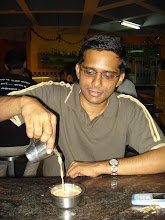Engineering and Liberal Arts!
What a combination. Isn’t it something like having sambar rice with paneer makhanwala. Something like attending a lecture of lecture of Switchgear and Protection followed by European History…..Absolute misfits right! The only courses that are relevant for engineering students are those related to Physics/Chem/Maths. Why the hell should engineers study history? or music or English literature for that matter! Isn’t it a pure waste of time? Engineers are supposed to be “quanti” types and are well advised to focus only on the core courses.
Well, that’s what our education system seems to think so. That is what I also thought until a couple of years ago. How incorrect we were! Liberal arts have a major role to play in shaping our thought process – provided it is taught in the perfect way.
The article below written by a Harvard School graduate in the recent issue of Financial Express explains this point beautifully
The famous author VS Naipaul remarked, “it’s a calamity” that India has “more than a billion people but no thinkers”. While, of course, he was being characteristically provocative, his remarks have more than a grain of truth. Although every year, India’s universities and colleges produce 2.5 million graduates, including 3,50,000 from engineering schools, Indian industry openly laments the fact that a very large percentage of Indian graduates have poor communication skills and lack analytical and problem-solving skills. According to a report presented to government by the National Knowledge Commission: “There is a quiet crisis in higher education in India that runs deep.” This report too identified communication and problem-solving skills among those that Indian education fails to develop.
These are the very skills imparted by a liberal education, which has the potential to “open the mind, correct it, refine it, enable it to know, and digest, master, rule and use its knowledge,” says Cardinal Newman, the 19th century thinker whose ideas have greatly influenced liberal education in the West. These are the habits Indian education has failed to cultivate en masse among its college students. A liberal education promotes breadth of awareness and appreciation, clarity and precision of thought and communication, critical analysis and the honing of moral and ethical sensibilities. Although one could receive a liberal education through any subject so long as it is taught with the objective of promoting some of the skills above, it is usually associated with the humanities, subjects such as history, language, literature, art, religion, political science etc.
Opening pure humanities/liberal arts colleges alone would not solve the problem. Even in the US, only 4% of college students attend liberal arts colleges. A more effective solution would be, as also stated in a recent report to the ministry of human resources development by the Yash Pal Committee, to integrate liberal arts subjects into engineering colleges, business schools, vocational and other professional schools as well. Given the demand for technical skills, engineering and science colleges and programmes will and should take priority. Rather than compete with the economic imperatives that call for the continued priority of technical education, to infuse liberal arts coursework into the curriculum at professional or engineering colleges seems to be the way to go. This will not only enrich students’ education and create well-rounded graduates, but also placate their practical concerns when they see how liberal arts coursework can lead to wider... and more interesting career options. For example, a combination of courses in electrical engineering and design could lead to a career in new product development at a growing breed of companies like Apple; a combination of mechanical engineering and art could lead to a career in film set design in Bollywood; computer science combined with history could lead to a career in educational software production and a computer science degree combined with Asian studies makes it much easier to land a job in Singapore. Additionally, for most engineers, to move up the career ladder and into management, the leadership, analytical and communication skills needed could be honed by liberal arts courses.
Author David Perkins in his book, Making Learning Whole, argues that while engineering courses equip engineers to “solve problems” they typically don’t teach them to “find problems”. This is a skill gained by a study of the humanities, where “problem finding is quite routine”. Perkins adds that “problem finding” concerns figuring out what the problems are in the first place. “It also involves coming to good formulations of problems, formulations that make them approachable”.
In a country like India, where problems seem so insurmountable so as to paralyse even the most well meaning individuals, there is a real need for individuals who can accurately identify the problems that we face and break these down in a way that make them more manageable and “approachable”. Other academics state that a liberal education prepares students to respond to and address human dilemmas. Indian education clearly hasn’t prepared students to resolve the glaring human dilemmas around us. Of course, there are other reasons too for promoting a liberal education in India. India needs home grown historians, linguists, theologians, political analysts, environmentalists and intellectuals who are experts both in their disciplines and in the communities in which they live and are capable of finding solutions to uniquely Indian problems.
Rather than be content to churn out professionals who simply execute ideas and plans of Western companies, Indian education needs to create its own thought leaders, innovators and creators. This is fitting for a country that in its new found confidence aspires to a greater international stature and continued economic growth. A liberal education, in addition to being personally enriching and potentially transformative for those who pursue it, can greatly help mitigate the weaknesses that plague India’s higher education.

No comments:
Post a Comment